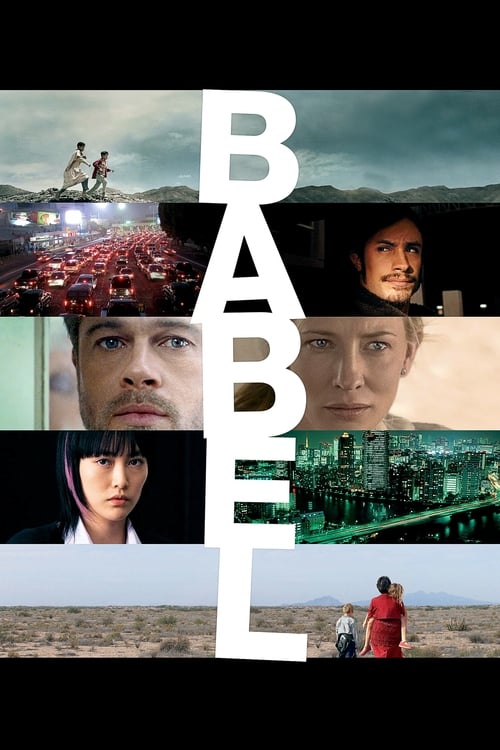
Title: Babel
Year: 2006
Director: Alejandro González Iñárritu
Writer: Guillermo Arriaga
Cast: Rinko Kikuchi (Chieko),
Adriana Barraza (Amelia),
Brad Pitt (Richard Jones),
Cate Blanchett (Susan Jones),
Satoshi Nikaido (Kenji Mamiya),
Runtime: 143 min.
Synopsis: Tragedy strikes a married couple vacationing in the Moroccan desert, which jumpstarts an interlocking story involving four different families.
Rating: 7.171/10
Echoes in the Void: The Fragile Threads of Babel
/10
Posted on July 27, 2025
Alejandro González Iñárritu’s Babel (2006) is a tapestry of human disconnection, woven with exquisite care yet frayed by its own ambition. The film’s multi-narrative structure, spanning Morocco, Japan, Mexico, and the U.S.-Mexico border, explores how a single act a rifle shot ripples across lives, cultures, and continents. Iñárritu, collaborating with screenwriter Guillermo Arriaga, crafts a meditation on miscommunication, where language, culture, and circumstance collide, leaving characters grasping for connection in a fragmented world. The film’s strength lies in its emotional rawness and visual poetry, but its sprawling scope occasionally dilutes its impact.
Emmanuel Lubezki’s cinematography is a standout, transforming each locale into a character. The sun-scorched Moroccan desert, with its stark, golden hues, mirrors the desperation of Richard (Brad Pitt) and Susan (Cate Blanchett), whose vacation unravels after a stray bullet. In contrast, Tokyo’s neon-drenched nights pulse with Chieko’s (Rinko Kikuchi) silent anguish, her deafness a metaphor for the film’s theme of unheard cries. Lubezki’s camera lingers on faces Pitt’s weathered resignation, Kikuchi’s vulnerable defiance capturing the universal ache for understanding. Gustavo Santaolalla’s score, a haunting blend of percussion and strings, underscores these moments with restraint, amplifying the emotional weight without overpowering it.
The ensemble cast delivers, though unevenly. Pitt and Blanchett anchor the Moroccan thread with quiet intensity, their strained marriage laid bare in crisis. Kikuchi’s performance as Chieko, a deaf teenager navigating grief and rejection, is the film’s heartbeat, her raw vulnerability stealing every scene. However, the Mexican subplot, centered on Amelia (Adriana Barraza), feels overburdened with tragedy, its resolution bordering on melodrama. Arriaga’s screenplay, while structurally bold, occasionally leans on contrivances like the rifle’s improbable journey to tie its stories together, sacrificing nuance for symmetry.
Iñárritu’s direction is both a triumph and a limitation. His mosaic approach, inspired by Amores Perros, demands patience but risks alienating viewers with its fragmented pacing. The film’s ambition to universalize human suffering can feel overwrought, as if every character must bear the weight of global despair. Yet when Babel succeeds, it’s breathtaking: a scene where Chieko dances in a Tokyo club, lights strobing as sound fades to silence, encapsulates the film’s thesis connection is fleeting, yet desperately sought.
Ultimately, Babel is a flawed but resonant portrait of humanity’s fractured attempts to communicate. It asks not for solutions but for empathy, reminding us that even in our isolation, we share the same fragile threads.
0
0
